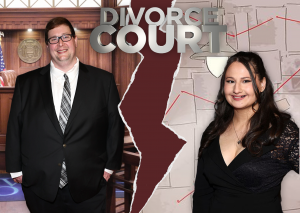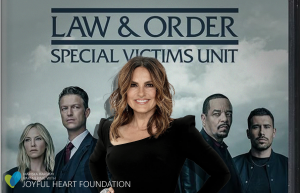 With an aggressive advertising campaign (at least on the estrogen-dominated TV stations I watch) and an adaptation from Nicholas Sparks, “Dear John” had big shoes to fill.
With an aggressive advertising campaign (at least on the estrogen-dominated TV stations I watch) and an adaptation from Nicholas Sparks, “Dear John” had big shoes to fill.
Instead, it ended up looking like a 5-year-old playing around in her mother’s heels.
Centered on John Tyree (Channing Tatum) and Savannah Curtis (Amanda Seyfried), “Dear John” follows two young lovers through their blossoming romance and subsequent long-distance relationship.
John, on leave from the Army, is a reformed middle-class bad boy with no patience for his unusual father (Richard Jenkins). Savannah is a rich good girl on spring break at her parents’ beach house in Charleston, S.C. when John wins her heart by saving her purse.
Their sudden love affair is cut short when Savannah has to return to school and John to the Army. To keep close with each other, they decide to write letters, documenting their every thought, action and feeling.
Puppy love has to eventually evolve though, and the two hit rough patches along the way, providing for unnecessary and predictable drama.
In Tatum’s previous roles in films like “Step Up” and “G.I. Joe: The Rise of Cobra,” speaking was never an issue. The roles called for more brooding stares and ripped muscles than actual acting. When dealt a role where talking is required, Tatum attempts yet ultimately falls flat. If he could act as well as he could cry, the movie would have improved immensely.
Seyfried, missing the charm she brought to “Mean Girls” and “Mamma Mia,” has to try even harder to make up for Tatum’s acting deficiency.
In the beginning of their romance, she exaggerates every glance, smile and nervous vocal misstep, inadvertently shoving the chemistry of the pair down the audience’s throats.
Another problem with the movie, besides the missing passion between Seyfried and Tatum, is the lack of depth in certain characters.
John’s background is completely uncovered, seeing where he came from, how he interacts with his family and how he behaved as a misguided teenager. With Savannah, the audience has to go off what she says, and it’s hard to believe everything coming out of a mysterious character’s mouth.
The biggest complaint with the film is the ending. It is impossible to tell what happens without ruining it, but it feels forced and contrived, and Tatum especially doesn’t have the acting skills to play it off smoothly.
While the most touching moments should stem from the hardships of John and Savannah’s relationship, the most tear-worthy moment comes in a stirring scene between John and his father, one where Tatum spends most of the time crying, selling its rawness well.
Directed by Lasse Hallstrom, “Dear John” constantly looks pleasing to a fault, trying to paint a beautiful, soft picture, even in the unknown war-torn countries where John serves.
As far as Sparks’ adaptations go, “Dear John” doesn’t hold up to its counterparts, especially “The Notebook.” Even the cheesiness of “A Walk to Remember” is better than this, and that means Tatum and Seyfried were out-acted by a pop star with an awful acting track record and a faded “it”-boy who broods better than he acts (Mandy Moore and Shane West).
In the end, “Dear John” misses the emotional punch other movies deliver, and every grand loving gesture seems like an obligatory romance cliche, not a true moment of passion.




